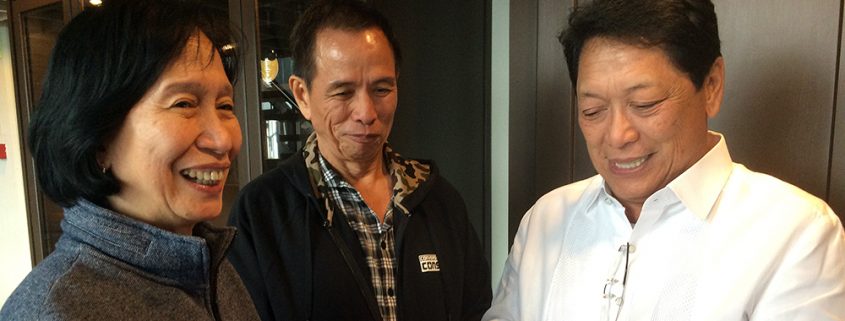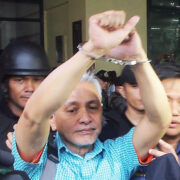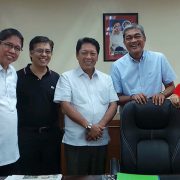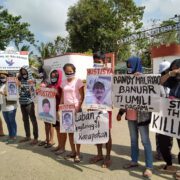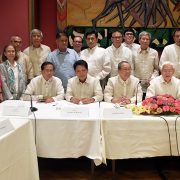NDFP says ceasefire holding, but…
THE National Democratic Front of the Philippines (NDFP) Negotiating Panel said the respective unilateral ceasefire declarations by the revolutionary group and the Government of the Republic of the Philippines (GRP) are holding despite reports of violations by the Armed Forces of the Philippines (AFP) and the Philippine National Police (PNP).
In a press release, NDFP Negotiating Panel chairperson Fidel Agcaoili said the Central Committee of the Communist Party of the Philippines (CPP) and the National Operational Command of the New People’s Army’s (NPA) August 28 2016 Unilateral Declaration of Interim Ceasefire with the GRP remains valid.
Agcaoili was responding to an October 20 letter from GRP Negotiating Panel chairperson Silvestre Bello III proposing that both the NDFP and the GRP “simultaneously declare their renewed commitment to their respective unilateral indefinite ceasefire.”
Bello made the proposal in light of the parties’ failure to meet the October 26 deadline for them to work out a bilateral ceasefire agreement in accordance with their October 9 Oslo Joint Statement.
“The Parties renewed their commitment to work through their respective ceasefire committees to reconcile and develop their separate unilateral ceasefire orders into a single unified bilateral document within 60 days from August 26, 2016,” the parties’ second round of formal peace talks statement said.
Agcaoili said he informed Bello that there is no need for a new declaration as the CPP and NPA’s unilateral ceasefire declaration remains valid during the course of the peace negotiations or until a notice of termination takes effect 10 days after receipt of notice by the GRP Negotiating Panel from the NDFP Negotiating Panel.
Ceasefire violations
In its press release, the NDFP also said there are persistent reports from regional NPA commands of GRP violations of its own ceasefire, such as incursions into NPA territory in the guise of civic action and anti-drug operations.
Human rights group Karapatan for its part said the AFP is using the Rodrigo Duterte government’s so-called war against drugs as a cover in implementing its Oplan Bayanihan counter-insurgency operations against leftists.
Karapatan suspects GRP troops are responsible for the killing of youth activist and environment defender Joselito Pasaporte in Compostela Province last October 13, who the PNP said was included in its drug watch list.
Karapatan also said the war on drugs was the cover in the arrest of eight farmer-activists in San Jose Del Monte, Bulacan last October 6.
“While the United States-driven Oplan Bayanihan remains operational, any form of people’s assertion of their rights will always be subject to repression. The ‘war against drugs’ is now being used as a convenient excuse by the PNP and the Armed Forces of the Philippines to undertake illegal arrests against citizens,” Karapatan Secretary General Cristina Palabay said.
Earlier, the NDFP said it suspects PNP elements are out to sabotage the peace process after the brutal police dispersal of an indigenous peoples-led rally at the United States (US) Embassy in Manila last October 18.
Agcaoili said it is most likely there are elements within the military and police who are against the new policy direction of their commander-in-chief, President Rodrigo Duterte, to pursue peace with the NDFP.
The Office of the Presidential Adviser on the Peace Process (OPAPP) also expressed shock at the violent dispersal, calling the police action “pure insanity.”
OPAPP added that it hopes the incident will not prevent the pursuit of achieving elusive peace in the country.
Violations may force NPA to retract
In a public forum last October 26, however, newly-appointed NDFP Negotiating Panel member Benito Tiamzon warned that continuing violations by the GRP would force the NPA to retract its unilateral ceasefire declaration.
“If the situation gets worse, it would be better to pursue the talks without ceasefire,” Tiamzon told dispersal victims last October 26.
“If the AFP continues to violate the ceasefire, it will not be long and it is highly probable that the NPA would retract its unilateral ceasefire,” he said.
Tiamzon recalled that, in the past, the peace talks continued even without a ceasefire.
More stable ceasefire possible
In his reply to Bello, Agcaoili reminded his counterpart of GRP’s commitments on the releases and amnesty of political prisoners in accordance with their June 15, August 26 and October 9 joint statements.
The NDFP Negotiating Panel has also recalled on several instances that it was Duterte who repeatedly volunteered issuing a general amnesty proclamation for political prisoners.
“Fulfillment of such commitment would serve as a big incentive towards accelerating the peace negotiations and forging a mutual stable ceasefire,” the NDFP said.
In their latest joint statement, the parties said they are exerting their best efforts to develop a single and unified document of a bilateral ceasefire agreement within a desired period.
There has been no GRP-NDFP bilateral ceasefire agreement since 1987. # (Raymund B. Villanueva)

